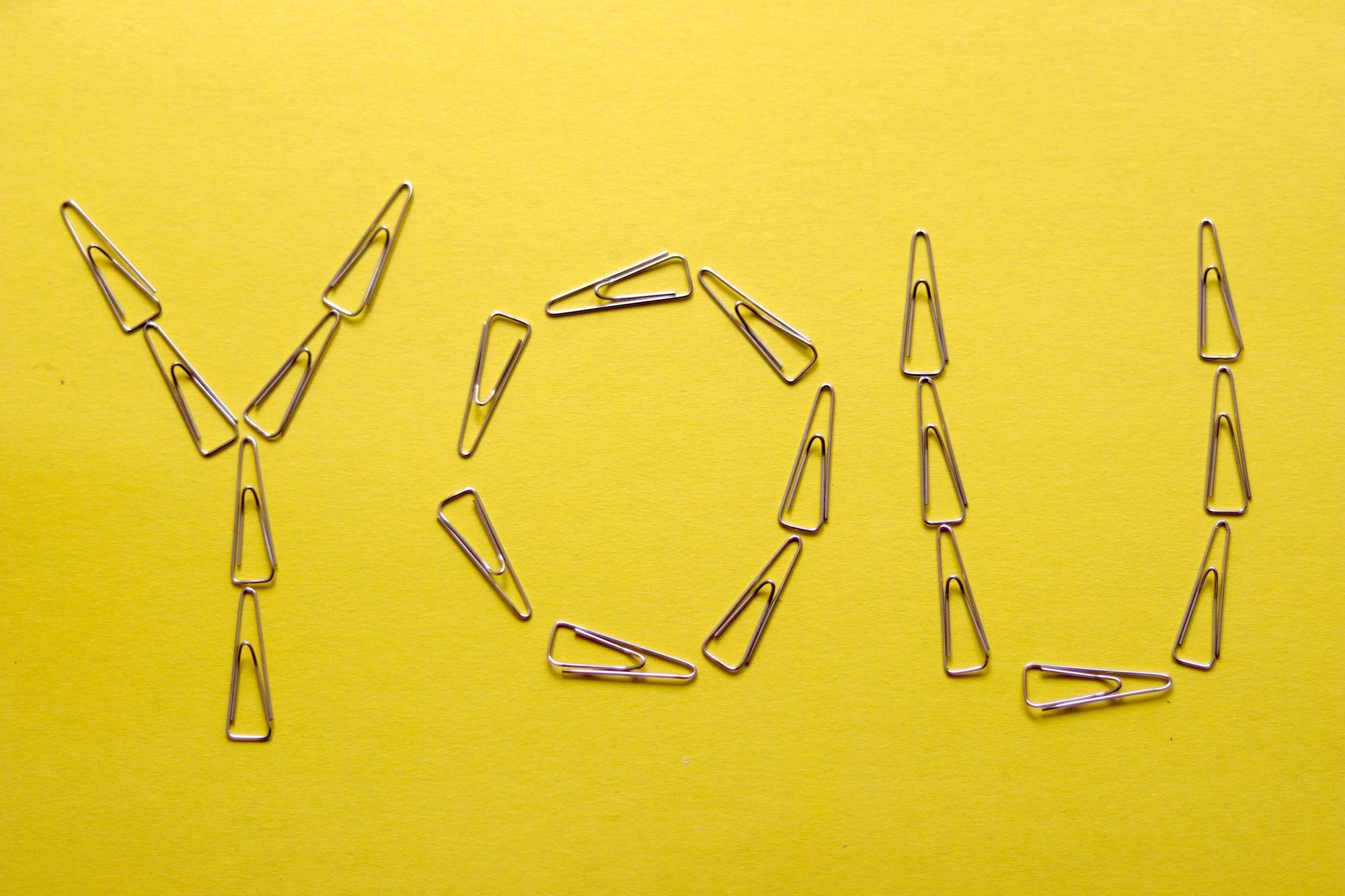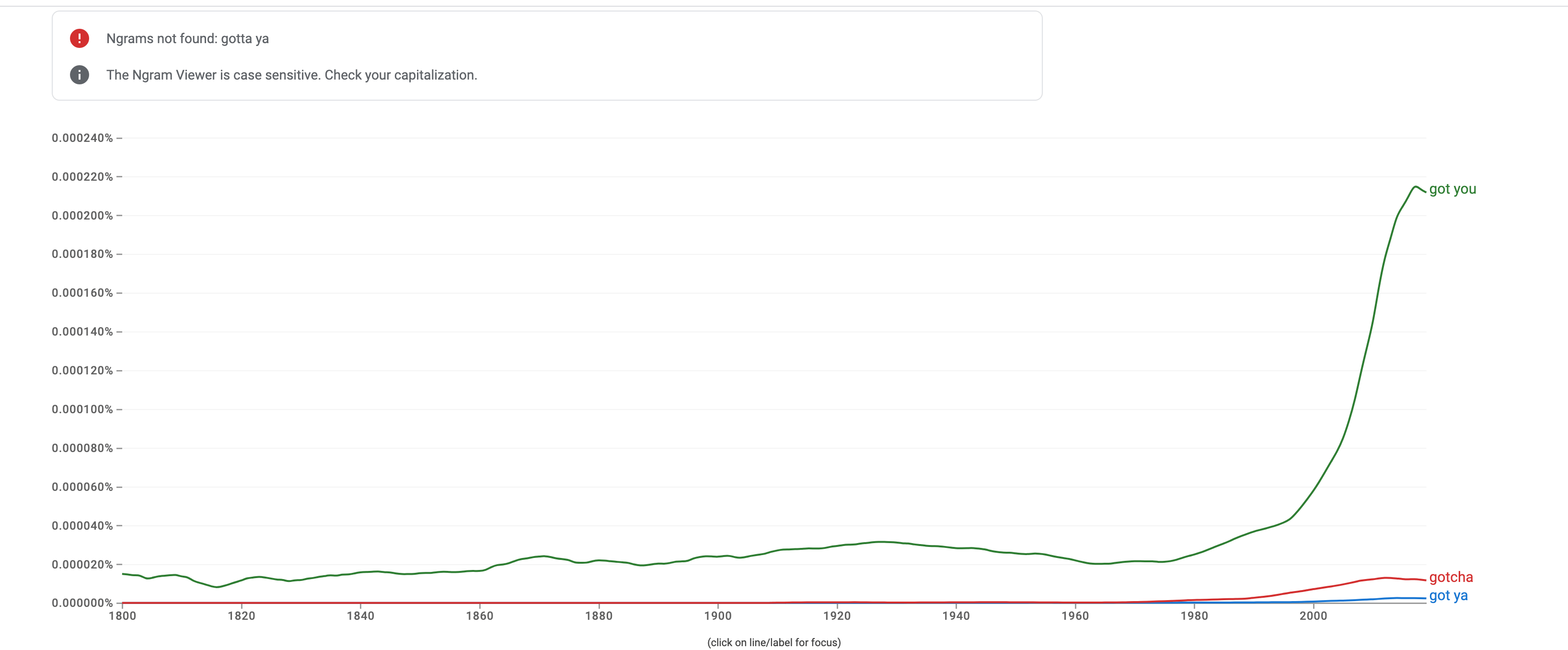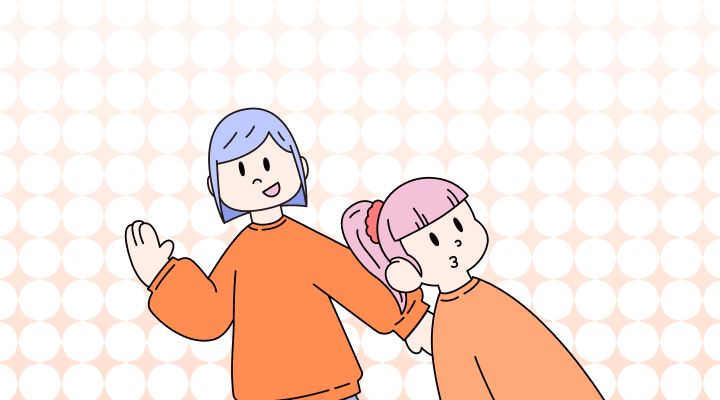- "Gotta ya" is variation of the phrase "got ya," "gotcha" and "got you" that should be avoided in communication.
- "Got Ya" is a more standard and widely accepted form, and it is often used to indicate that someone has been caught or found out.
- "Gotcha" is an informal and shortened form of "got you." It is often used to express success in catching someone in the act or understanding a tricky situation.
- "Got You" is the more formal and complete version of the colloquial "gotcha."
✅ I hid behind the door and scared my friend when she walked in. Got ya!
✅ You thought you could pull a fast one on me, but I saw through it. Gotcha!
✅ I found the evidence you were looking for. I got you covered.
When to use Gotta Ya vs. Got Ya vs. Gotcha vs. Got you
Gotta Ya:
- Least common, and not recommended for use.
Got Ya:
- Middle ground in formality. Contraction of "got you" with two main meanings:
- Understanding: Acknowledges your grasp of the information.
- Catching someone: Similar to "gotta ya," but in a less playful way.
- Examples:
- "So, the budget report is due by Friday?" "Got ya. Thanks for the reminder."
- You finally find your hidden phone: "Ha! Got ya!"
Gotcha:
- Most versatile and common. Further contraction of "got you" with two main meanings:
- Understanding: A stronger sense of agreement or acceptance.
- Catching someone: Playful, triumphant exclamation, perfect for games, pranks, or friendly debates.
- Examples:
- "I bet you can't do ten pushups right now!" "Oh, you're on! Just wait till I warm up... gotcha!" (After completing pushups)
- "I knew you couldn't resist spoilers!" "Okay, okay, you gotcha. I peeked at the final episode."
Got You:
- Most formal of the group.
- Understanding: Acknowledges comprehension.
- Catching someone: But often in a less playful or triumphant way than "gotcha."
- Examples:
- "Can you hand me the remote?" "Sure, I got you."
- "You left your wallet at the coffee shop!" "Thanks for catching me, I got you."
Examples from the web
Got Ya
"I would probably be like, "Ahh got ya!" And then I'd go off to the other realm and leave him alone." - Vice
Gotcha
"'Gotcha (= caught you), you little thief!' she cried, as I tried to snatch a cookie from the table." - Cambridge Dictionary
Got You
"We got you." - The New York Times
Casual grasp? "Got ya." Triumphant catch? "Gotcha!" Formal understanding? "Got you."

Usage of Gotta Ya vs. Got Ya vs. Gotcha vs. Got you
Examining the graph below, we can see that "got you" is used most frequently, especially after the 1980s, when it experienced a steep increase in usage. "Gotcha" falls second, which is then followed by "got ya." The graph shows that "gotta ya" was not used from the 1800s to the 2000s.

FAQ
Does gotcha mean yes?
No, "gotcha" doesn't inherently mean "yes." It's an informal contraction of "got you," often used to express understanding, catching someone in a situation, or acknowledging a trick. While it indicates comprehension, it doesn't serve as a direct substitute for affirming a statement with "yes."
Is it gotcha or gotya?
The correct and widely accepted spelling is "gotcha." It is an informal contraction of "got you," commonly used to convey understanding, catching someone in a situation, or acknowledging a trick. "Gotya" is not a standard spelling and may be considered nonstandard or colloquial.
What is a Gotcha moment?
A "Gotcha moment" refers to a situation where someone is caught or tricked, often unexpectedly. It's a moment of revelation or discovery, revealing something previously hidden or unknown. This term is commonly used to describe instances of surprise or realization.
Summary
In conclusion, understanding the nuances between "Gotta Ya," "Got Ya," "Gotcha," and "Got You" allows you to use these expressions appropriately in different situations. Whether you're playfully teasing a friend, making a serious revelation, or blending formality with informality, choosing the right phrase enhances your communication skills. So, the next time you catch someone off guard or reveal a surprise, you'll know exactly whether to say "gotta," "got," or "gotcha" to convey your message effectively.

Want to sound like a native speaker?
Engram’s AI-powered grammar checker makes your English sound like a native speaker’s, suggesting natural English expressions on top of fixing grammar, spelling, punctuation, word order, and vocabulary.

References:














